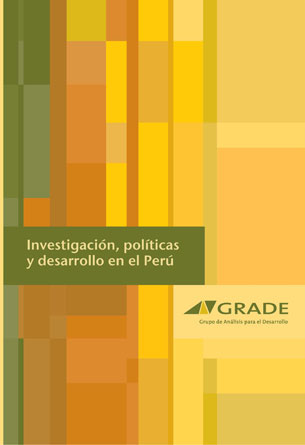¿Por qué no funcionan los programas alimentarios y nutricionales en el Perú?: riesgos y oportunidades para su reforma
Investigación, políticas y desarrollo en el Perú
| Year | : | 2007 |
|---|---|---|
| Author/s | : | Lorena Alcazar |
| Area/s | : | Methodologies for research and evaluation of policy and programmes, Poverty and equality, Health and nutrition |
Alcázar, L. (2007). ¿Por qué no funcionan los programas alimentarios y nutricionales en el Perú?: riesgos y oportunidades para su reforma. En Investigación, políticas y desarrollo en el Perú (pp. 185-234). Lima: GRADE.
This paper explores, through a review of studies on the subject, some hypotheses that try to explain the common characteristics of food programmes that may be hindering the fulfilment of their objectives. As we shall see, it is not only a question of limited resources, but also of overlapping areas of intervention, problems in the allocation of resources and inefficiencies in implementation; but mainly there are deficiencies in the design of the programmes themselves and a lack of effective mechanisms for information, monitoring and evaluation, which reduces the development of a culture of service provision by results and social oversight of the programmes.
Based on the exploratory work on the shortcomings of social policy in this field, the paper also examines the opportunities and risks of current efforts to reform food and social programmes in general, in particular those related to the implementation of a conditional cash transfer programme (Juntos) and the transfer of responsibility for the management of these programmes to provincial municipalities.







